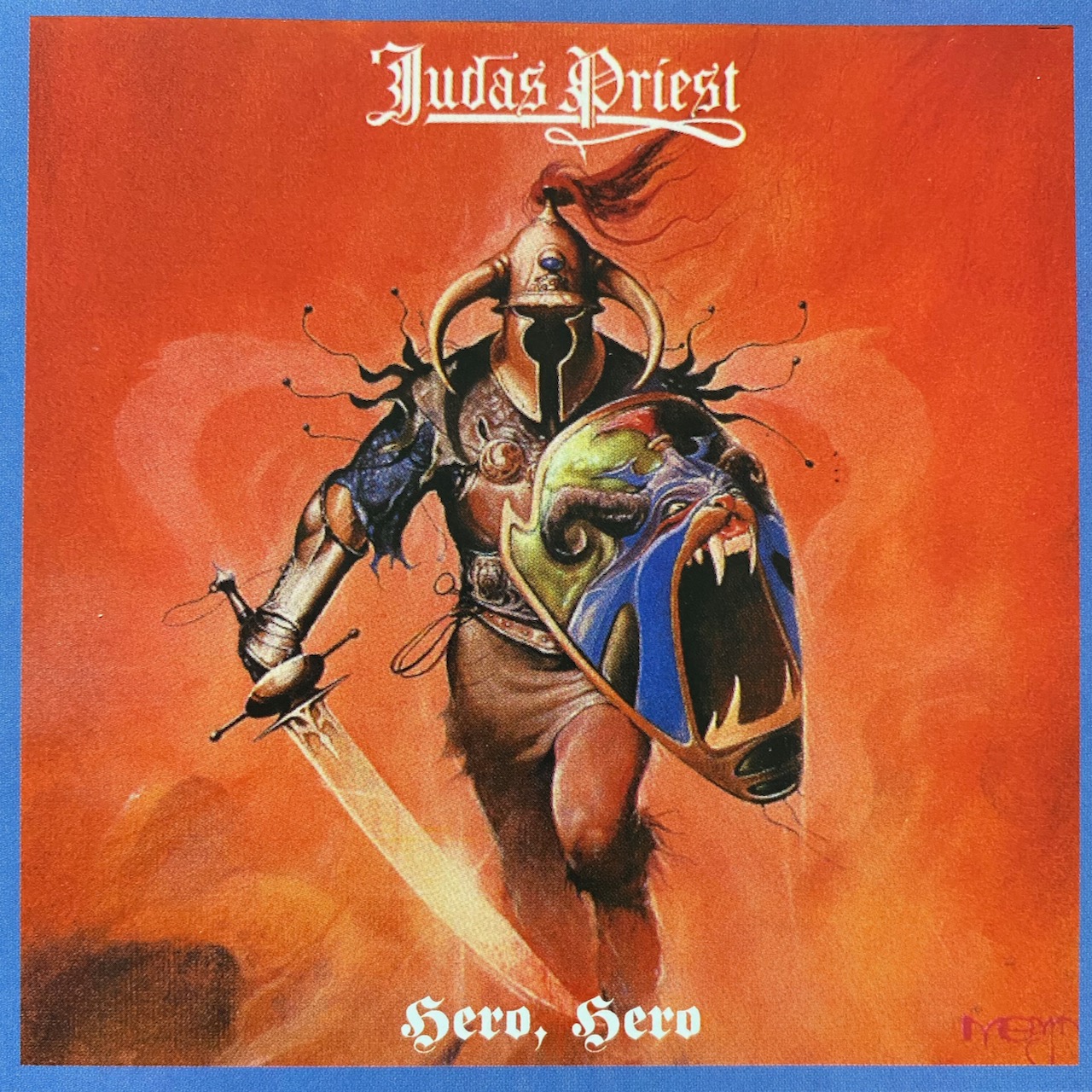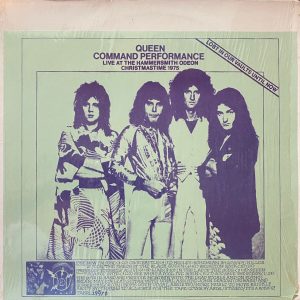
Judas Priest – ‘Hero, Hero’ (1981) – Album Review (The Complete Albums Collection Series)
When it comes to legendary heavy metal bands, Judas Priest definitely stands among the elites, and their compilation album ‘Hero, Hero’ serves as an intriguing chapter in their story. Released in 1981 during the band’s ascent to fame with the critically acclaimed ‘British Steel,’ this collection was launched by Gull Records in a tactical move to seize the group’s rising popularity. It merges tracks from their earlier works, showcasing songs from ‘Rocka Rolla’ (1974) and ‘Sad Wings of Destiny’ (1976), with the compilation comprising all songs from ‘Rocka Rolla’ alongside six from ‘Sad Wings.’
An interesting highlight of this compilation is that it features a remixed version of the ‘Rocka Rolla’ tracks—with the exception of the CD edition I own under Koch Records, where the songs remain unaltered, sticking to their original recordings. However, “Diamonds and Rust,” initially from ‘Sad Wings,’ retains the updated mix.
The band lineup during this period included Rob Halford, K.K. Downing, Glenn Tipton, and Ian Hill, with drumming duties alternating between John Hinch and Alan Moore.
The album kicks off with “Prelude,” an instrumental that feels somewhat disconnected from the subsequent track, “Tyrant.” This opening piece, cast in a baroque style, features piano and tom tom drums but ultimately doesn’t leave much of a lasting impression and comes off as skippable.
Then comes the explosive track “Tyrant,” which ignites with a killer riff right from the start. This is the unmistakable Judas Priest that metal fans crave—hard-hitting, heavy, and unmistakably visceral. Halford’s vocal work shines through as he layers his vocals beautifully during the chorus. The electric interplay between Downing and Tipton is mesmerizing, and it’s a joy to hear them push each other throughout the song.
Next on the tracklist is “Rocka Rolla,” an upbeat number characterized by energetic guitar solos from both Downing and Tipton, concluding with a harmonica solo by Halford. The track brings a refreshing bluesy sound to the lineup, perfectly contrasting with the prior opener.
“One for the Road,” a composition by Halford and Downing, showcases a 70s classic rock vibe reminiscent of Sabbath and Deep Purple. Halford’s impeccable range shines as he effortlessly hits high notes, along with infectious opening riffs.
The lengthy track “Victims of Changes,” crafted by Halford, Downing, Tipton, and Al Atkins, brings listeners on an eight-minute journey filled with rhythm shifts and intricate textures. Halford’s powerful falsettos and his dramatic screams make this piece legendary and enthralling.
On the flip side, “Dying to Meet You” feels like the album’s weakest moment. Rob ventures into deeper vocal territory, which results in a solemn tone that doesn’t quite resonate. However, the hidden track “Hero, Hero” embedded within this song warms things up significantly, returning to a classic rock sound with uplifting tempo and Halford hitting soaring notes.
Then there’s “Never Satisfied,” a track co-written by Atkins and Downing that harkens back to Led Zeppelin influences, showcasing Halford’s vocal versatility. The grit in his voice adds a delectable touch to this guitar-heavy offering.
The mood shifts dramatically with the heartfelt ballad “Dreamer Deceiver,” which maintains a bluesy essence while feeling distinctly metallic. Its accompanying solo ranks as one of the album’s highlights. Segueing into the following track “Deceiver,” which is heavier and leans into speed metal territory, the bass grooves solidify the sonic landscape, allowing listeners to appreciate the band’s experimental edge.
The following suite, consisting of “Winter,” “Deep Freeze,” and “Winter Retreat,” presented an ambitious progression akin to progressive rock. While “Winter” carries a dark, Sabbath-like tone, “Deep Freeze” follows suit with enticing percussion, but “Winter Retreat,” with its abrupt transitions and psychedelic tendencies, disrupts the flow.
“Cheater,” another Halford and Downing creation, thrusts us back into the depths of bluesy hard rock with a captivating opening riff, perfectly infused with classic rock swagger.
The compilation would be remiss without mentioning the standout cover of Joan Baez’s “Diamonds & Rust.” Priest transforms this folk gem into an electrifying metal rendition that showcases Halford’s vocal prowess while maintaining strong musicality.
“Run of the Mill,” the album’s lengthy highlight, dives deep into themes of life reflection. It blends Halford’s dynamic vocals with an ambitious progressive-style narrative, leaving audiences with a haunting emotional resonance.
Transitioning into “Genocide,” we experience more mid-tempo riffs with aggressive lyrics laced with controversy and social commentary, culminating in an intense musical climax.
Finally, “Caviar and Meths,” an instrumental co-written by Atkins, Downing, and Hill, struggles under its brevity; clocking in at two minutes, it exposes a lack of development, serving more as unusual filler than a memorable closer.
In the grand scheme of Judas Priest’s discography, ‘Hero, Hero’ acts more as an artifact than a definitive collection—it’s a mixed bag of the band’s earlier identity while they were still carving out their legendary sound. While you may find moments of greatness here, the necessity of purchasing their first two albums overshadows the existence of this compilation.
Overall, the rating is a modest 3.0 out of 5.0 stars—an acknowledgment of the solid tracks, but underscored by a sense of redundancy.
Fun Fact: The album cover for ‘Hero, Hero’ mirrors the artwork used for the Kiss bootleg ‘Barbarize,’ which adds an interesting twist to its backstory.






